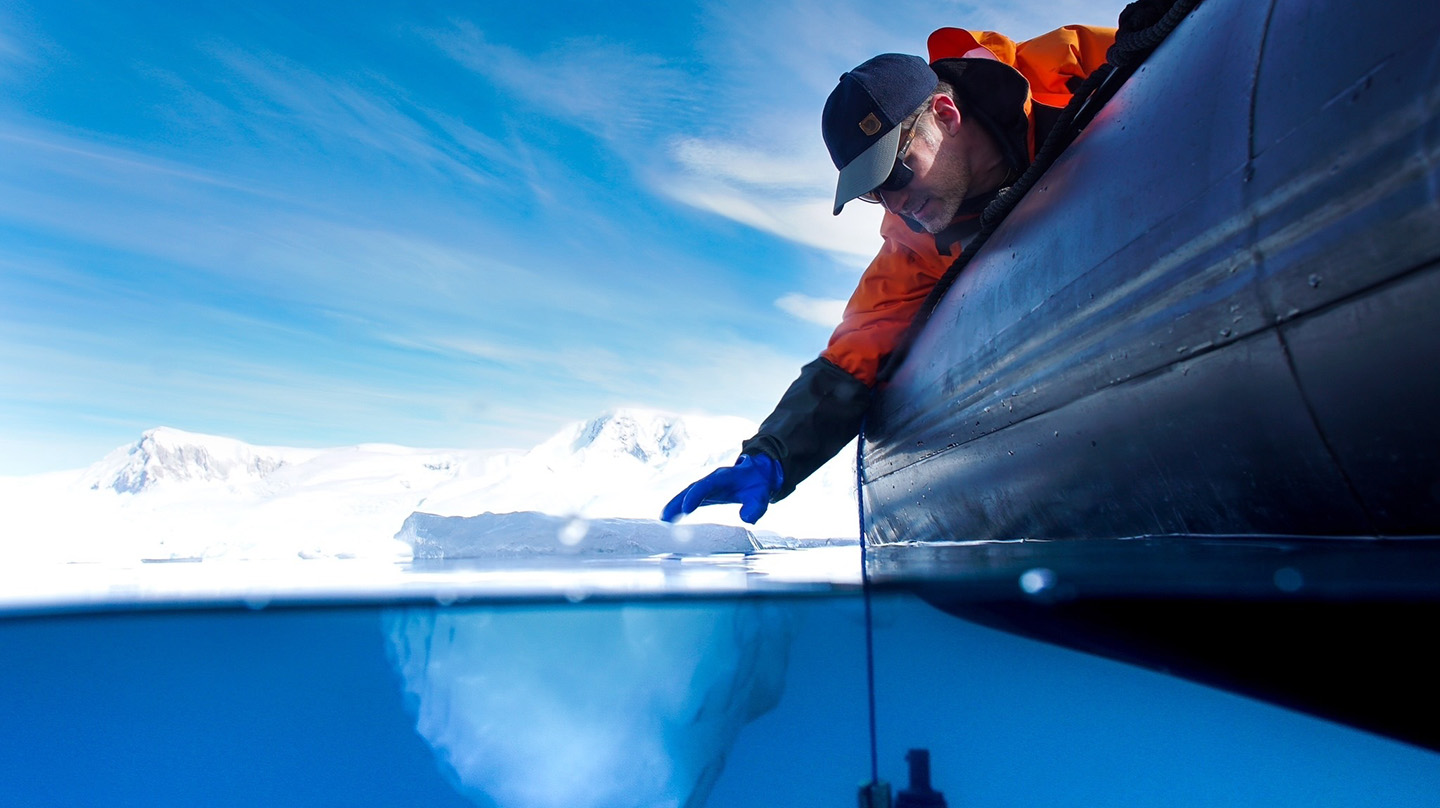
Oceanography
Expertise in Action
Highlights

AI for Complex Systems
Leveraging the power of artificial intelligence and mathematics to spur innovation and novel solutions to challenges at the intersection of Earth systems and national security
Learn more about
AI for Complex Systems
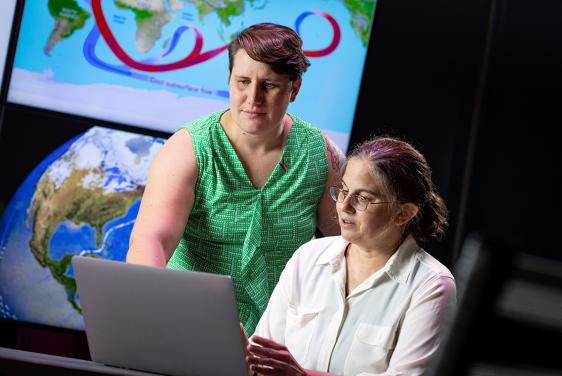
AI for Tipping Point Discovery
Artificial intelligence experts and oceanographers are integrating AI with traditional Earth systems modeling methods to enable scientific researchers to better understand tipping points, critical thresholds that, once crossed, could “tip” a natural Earth system into an entirely different state.
Learn more about
AI for Tipping Point Discovery
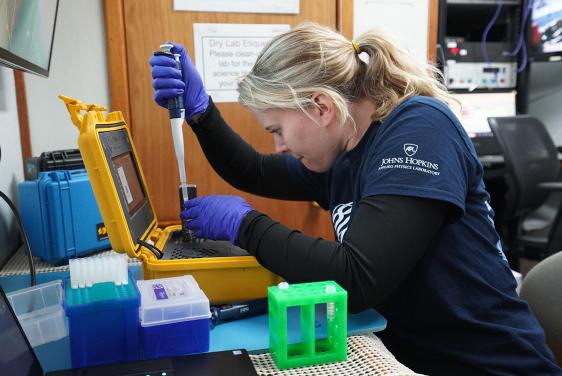
Enlisting eDNA to Understand Ecosystems
APL researchers are using genetic information to observe animals, plants, and microbes in their natural environments, and pioneering environmental DNA (eDNA) analysis methods to study marine ecosystems that the world relies on as the foundation of global food webs.
Learn more about
Enlisting eDNA to Understand Ecosystems
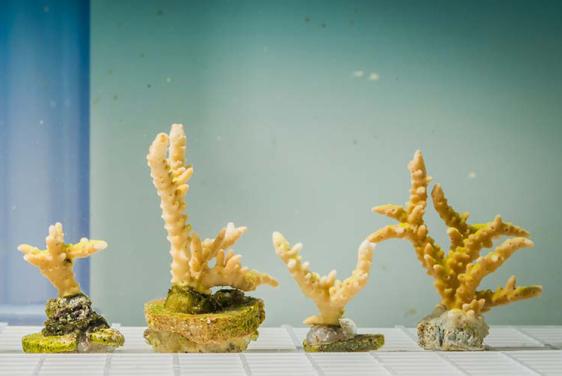
Reversing the Loss of Coral Reefs
Recognizing the need to safeguard America’s coastlines and the value natural structures play in their protection, APL researchers are finding ways to use materials science to support coral reef growth and restoration.
Learn more about
Reversing the Loss of Coral Reefs
Related News

Into Vanishing Ice May 21, 2024
The melting Arctic is creating new trade, economic and operational opportunities — but also new challenges that could threaten the U.S. border and the region’s fragile ecosystem. Researchers at Johns Hopkins APL are pooling their expertise and established experience in materials, modeling, AI and sensing to develop the technology and knowledge for a sustainable and lasting foothold in this rapidly changing region.
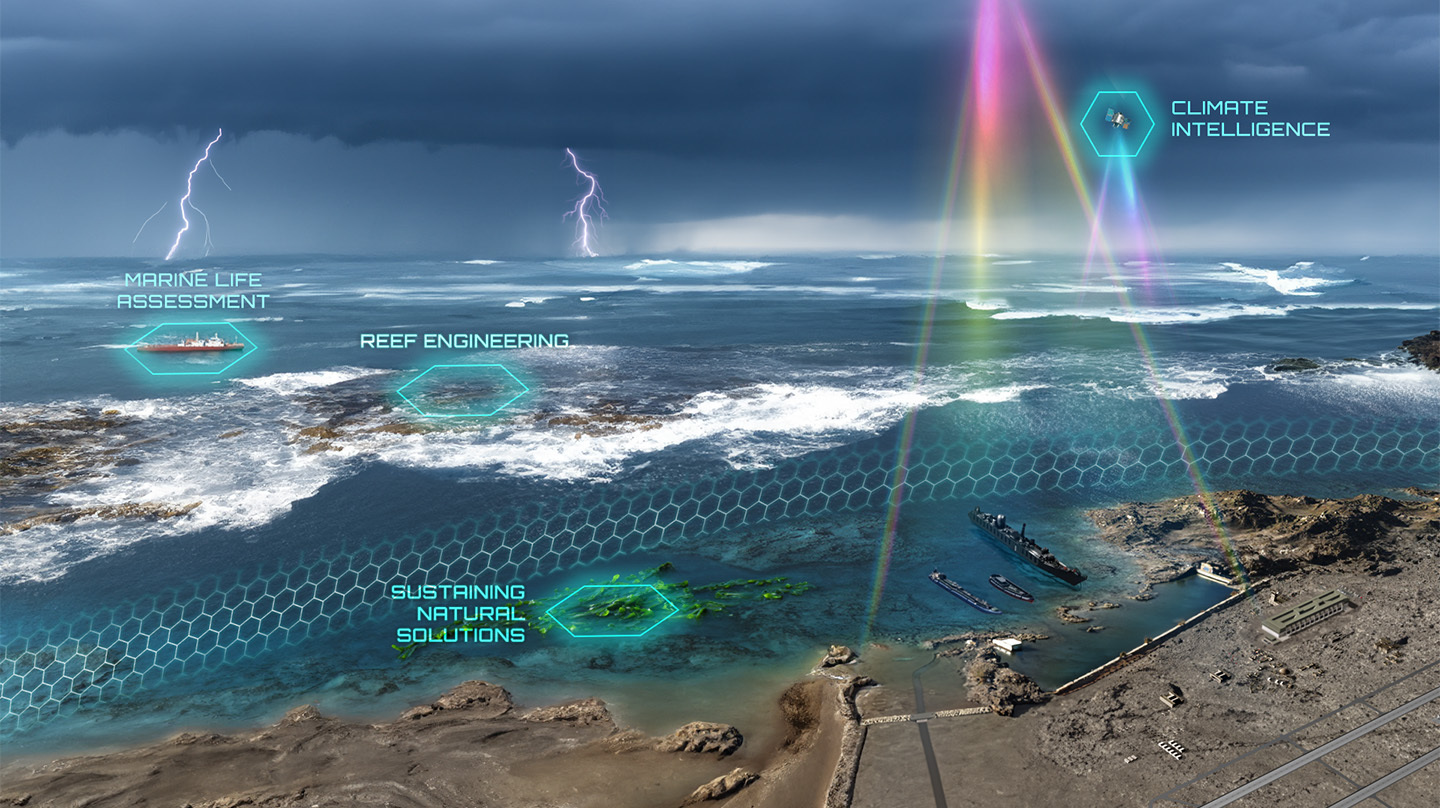
Johns Hopkins APL Developing a Suite of Solutions to Address Coastal Challenges Apr 25, 2024
As coastlines become more difficult to secure, APL is combining expertise in materials engineering, marine biology, plant biology, computer science and modeling to fortify coastal resilience.
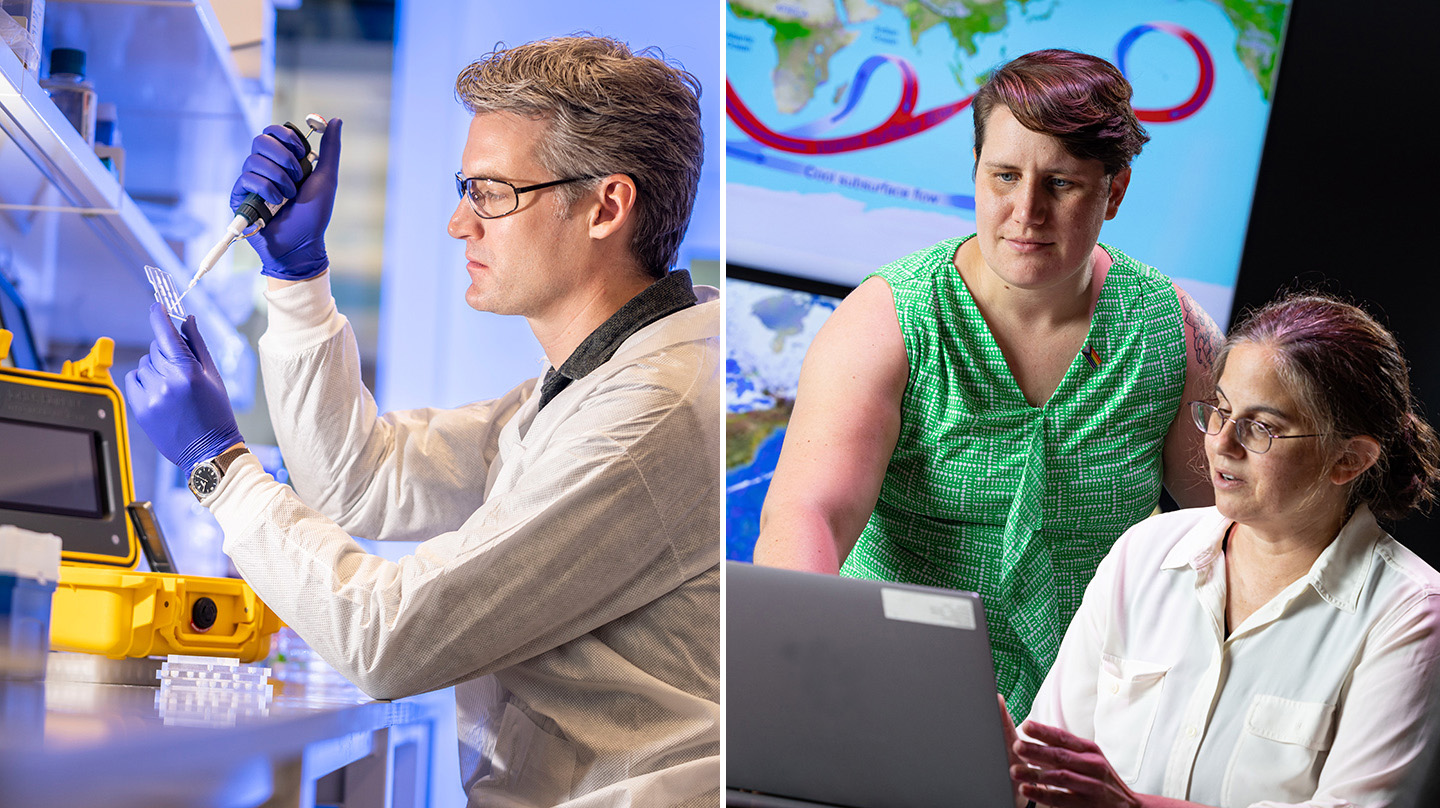
Johns Hopkins APL Honored Twice on Fast Company’s 2024 ‘Most Innovative Companies’ List Mar 19, 2024
Two breakthrough technologies from APL received Most Innovative Companies awards from Fast Company. APL was ranked No. 6 in the Rapid Response category for biothreat characterization technology and No. 10 in the Applied Artificial Intelligence (AI) category for its use of AI to identify climate tipping points.

Expanding eDNA Research and Physical Oceanography Into Critical Polar Regions Sep 12, 2023
On an exploratory trip to Antarctica, Johns Hopkins APL researchers delivered environmental DNA samples and physical oceanographic data that could provide insights into ecosystem dynamics in and around Earth’s southernmost continent.
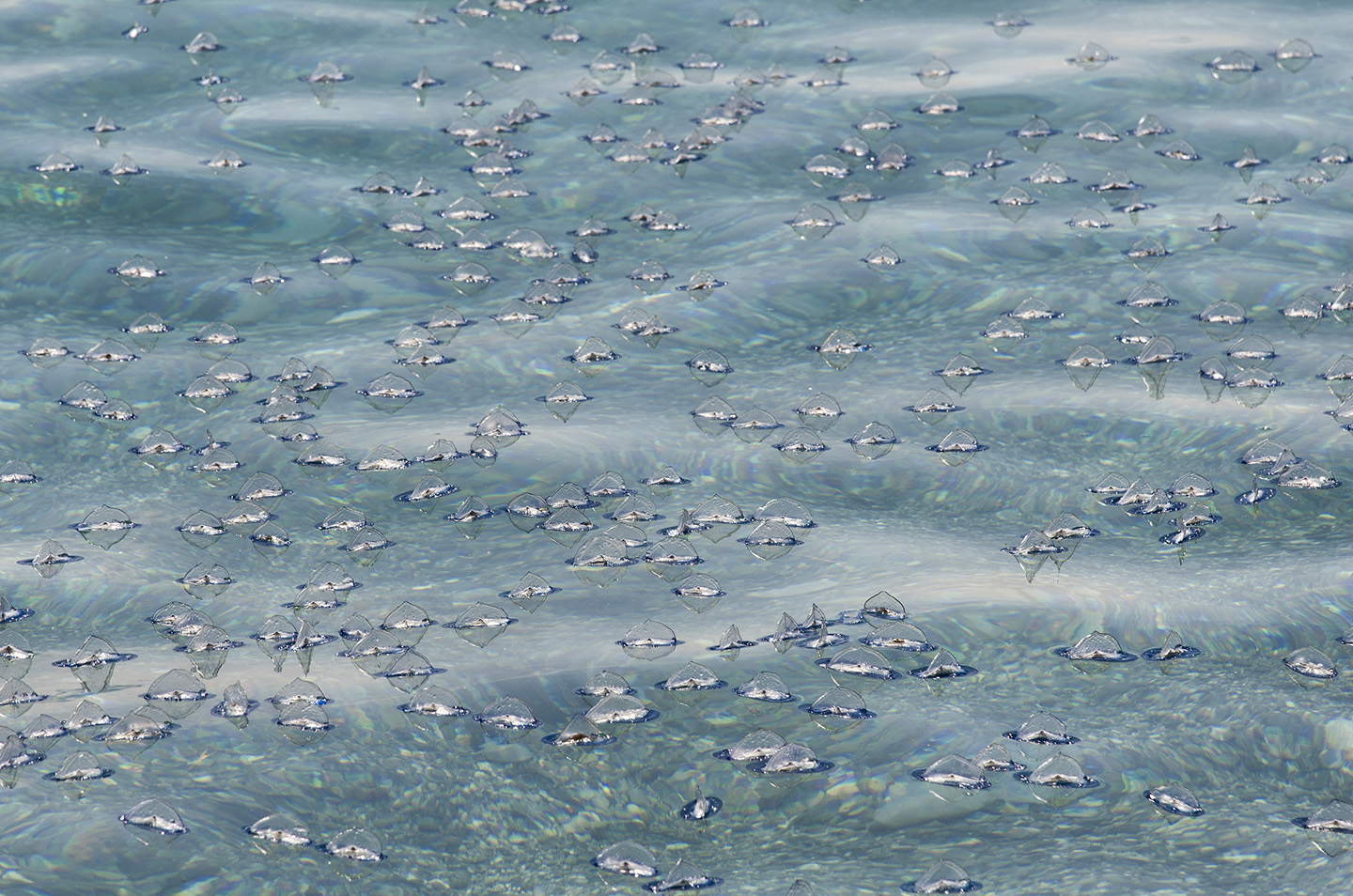
Inspired by Jellyfish, Johns Hopkins APL Researchers Float a Versatile Sensor Platform Apr 27, 2023
It looks like a jellyfish, floats like a jellyfish and moves like a jellyfish — but in this instance it’s not a jellyfish, it’s a product of APL ingenuity. Laboratory researchers are drawing inspiration from one of nature’s best sailors to develop a versatile, low-cost sensor for ocean observations.
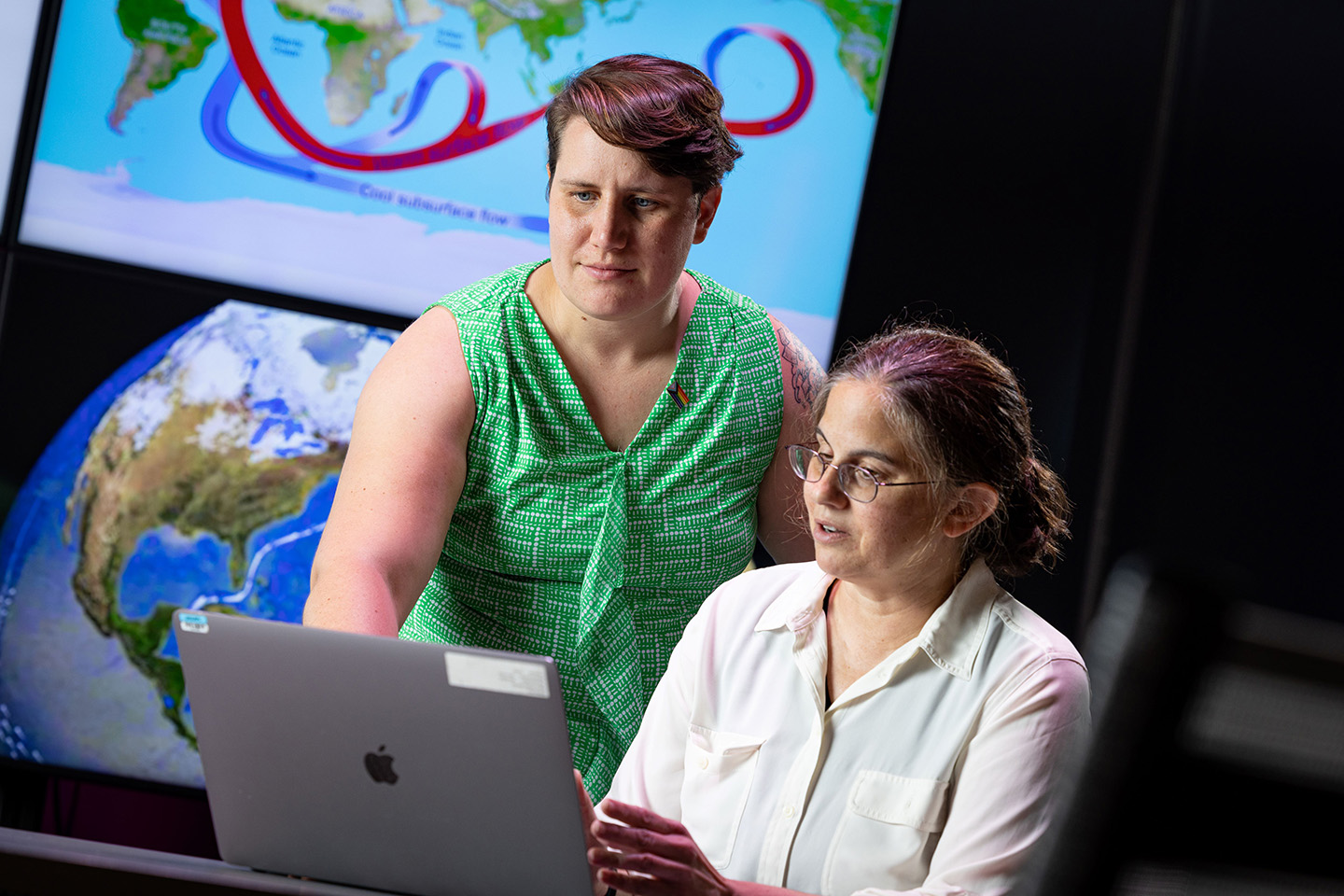
Johns Hopkins Scientists Leverage AI to Discover Climate ‘Tipping Points’ Mar 31, 2023
Researchers from Johns Hopkins APL and the Johns Hopkins Department of Earth and Planetary Sciences are developing a modeling tool to predict climate “tipping points,” critical thresholds that, when crossed, can lead to large and often irreversible changes in the climate system.